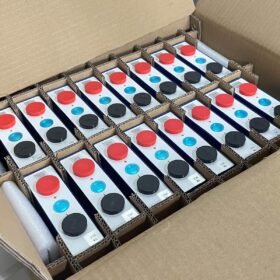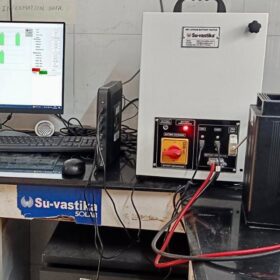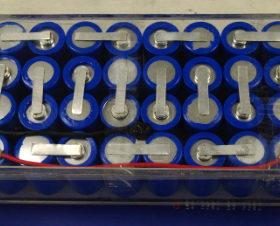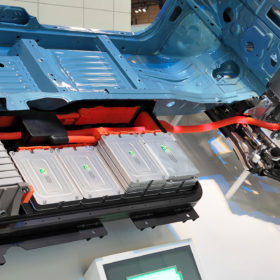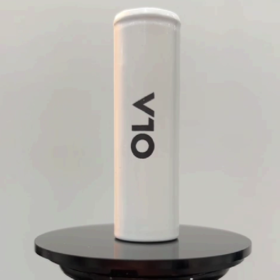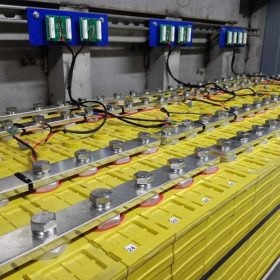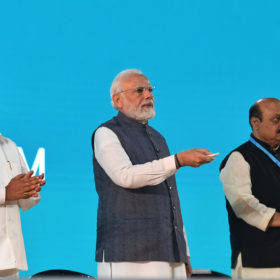Lithium-iron phosphate prismatic battery cells with energy density of 138 Wh/kg
Chinese energy storage company Imren Battery has introduced its new EVE LF105 lithium-iron phosphate (LFP) prismatic battery cells, which can be used in a wide range of applications, including EVs, renewable energy storage, and other applications.
Amara Raja breaks ground on 16 GWh li-ion cell, 5 GWh battery pack factory
Executive director Vikramadithya Gourineni told pv magazine their Telangana factory will produce lithium ferro phosphate (LFP) and nickel-manganese-cobalt (NMC) chemistry cells.
Exide targets 12 GWh of li-ion cell capacity by 2027
Gayatri Dadheech, chief technology officer at Exide Industries Ltd, told pv magazine their first-phase 6 GWh lithium-ion cell manufacturing capacity in India would become operational by December next year and will produce lithium ferro phosphate (LFP) and nickel-manganese-cobalt (NMC) cells. The following 6 GWh, targeted by 2027, could be based on advanced lithium-ion, solid-state, or other battery technology.
What’s cooking in a farmhouse factory
Kunwer Sachdev, the founder of Su-kam brand inverters in India, has converted his farmhouse in Gurugram into an R&D and manufacturing facility for new-age solar and lithium battery storage products under his new venture Su-vastika Systems. He speaks to pv magazine about their offerings including mobile energy storage, lithium battery tester, solar inverters, and more.
Neogen signs technology license agreement with Japanese major to manufacture lithium battery electrolytes in India
With this arrangement, Neogen gets access to a proven global technology to manufacture electrolytes at scale for lithium-ion batteries in India.
India needs over $4 billion to create 50 GWh of lithium battery capacity under PLI Scheme: CEEW
A new study by CEEW deconstructs the lithium-ion battery cell manufacturing process, calculates the material and finance requirements, and offers a blueprint for the domestic strategy.
Ola Electric to set up lithium battery gigafab in Tamil Nadu
The winner of the 20 GWh battery cell capacity under the government’s production-linked incentive (PLI) scheme is going to set up its lithium battery factory in Tamil Nadu.
New EV battery offers 50% more density than traditional lithium-ion batteries
Ionblox says it will use $32 million of series B funding to support the buildout of a novel silicon anode electric vehicle battery.
PM Modi inaugurates India Energy Week 2023 in Bengaluru
Prime Minister Narendra Modi today launched India Energy Week 2023, a three-day event connecting India’s energy stakeholders with international counterparts to collaborate for a responsible and smart energy transition on India’s road to net zero. Addressing the gathering, the Prime Minister said India is today the world’s most suitable place for investment. He called upon the stakeholders to explore every possibility in India’s energy sector and get involved with it.
Union Budget 2023-24: EV industry calls for GST cut for batteries, low-cost EV finance, and more
Players in the electric vehicle (EV) hope the government will bring down the goods and services tax (GST) on EV batteries to 5% and lower duties on raw materials required for cell manufacturing. They also call for easy, low-cost EV finance to drive customer adoption.
